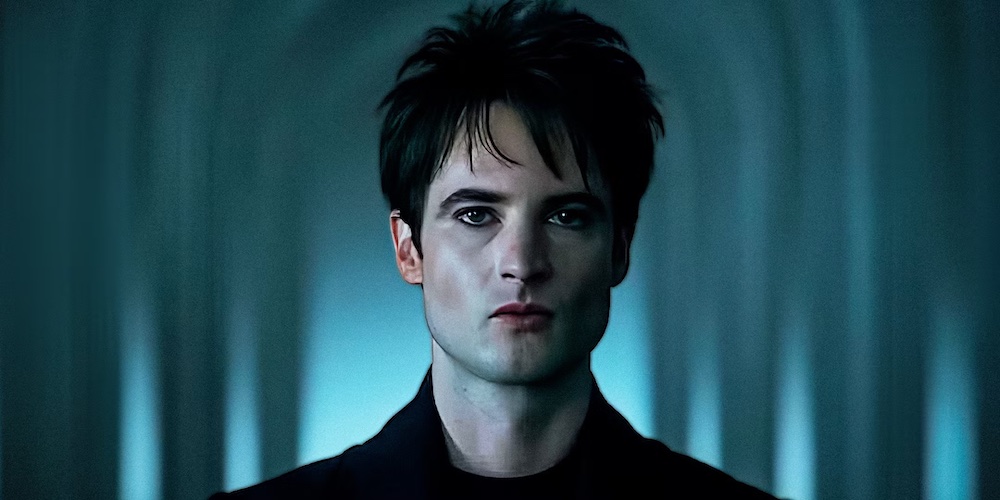Why The Sandman Season 3 Won’t Happen: Netflix Explains

Why The Sandman Season 3 Won’t Happen: Netflix Explains
Netflix’s The Sandman series has captivated audiences with its lush storytelling and faithful adaptation of Neil Gaiman’s iconic comic book saga. With the recent release of Season 2, many fans eagerly anticipated the possibility of a third season. However, it has now been confirmed that Season 2 will serve as the series finale, ending the show’s run. This decision has sparked speculation and questions, especially given the sensitive context surrounding the production, including sexual assault allegations against Neil Gaiman, co-creator of the source material.
In this article, we’ll explore the official reasons why The Sandman Season 3 isn’t happening, clarify rumors about cancellations related to Gaiman’s allegations, and explain how the creative direction of the show influenced its planned conclusion.
The Sandman’s Story Arc and Season Structure
The Sandman TV series is based on Neil Gaiman’s beloved comic book series published by DC’s Vertigo imprint. The comics are composed of multiple volumes, each telling a unique but interwoven story centered on Dream, also known as Morpheus or the Sandman. The first season of the show adapted the initial two volumes, Preludes & Nocturnes and The Doll’s House, establishing the foundation of Dream’s world and introducing key characters.
Season 2 covered subsequent storylines from the comics, featuring the Endless family and Rose Walker (played by Vanesu Samunyai). The producers carefully selected which volumes and arcs to adapt, focusing on the most essential Dream-centered tales.
Despite there being more comic volumes and several spinoffs, the showrunners decided to concentrate the narrative into two seasons, culminating with a satisfying conclusion. The bonus episode in Season 2, “Death: The High Cost of Living,” notably shifts focus to Dream’s sister, Death (Kirby Howell-Baptiste), offering a brief but poignant departure from the central character.
Why The Sandman Was Always Planned to End After Season 2

The decision to end The Sandman after Season 2 was made well before the recent controversies surfaced. According to Deadline, the creators decided the show would conclude with the second season even before filming began.
Allan Heinberg, the showrunner, explained on social media platform X that the series was designed to focus on Dream’s story exclusively. Given that Dream’s presence in some later comic volumes is limited, the creative team recognized that only one more season was necessary to complete his arc.
In an interview with Entertainment Weekly, Heinberg emphasized that while the series boasts many fascinating supporting characters, it fundamentally revolves around Dream. This narrative anchor guided the team’s choice to craft a compact and focused ending rather than extending the story unnecessarily.
This approach contrasts with many fantasy TV adaptations that struggle to balance pacing and story completion, often leading to premature cancellations or stretched-out seasons. The Sandman producers instead prioritized a well-rounded conclusion, making Season 2 the natural endpoint.
The Impact of Neil Gaiman’s Allegations on The Sandman’s Future
In July 2024, several women publicly accused Neil Gaiman of sexual assault, allegations he has denied. These claims intensified with a detailed Vulture article published in January 2025, coinciding with the announcement that The Sandman Season 2 would be the final season.
Given the timing, many fans and observers speculated whether the allegations influenced Netflix’s decision to end the series. However, key figures involved in the production have clarified that the allegations did not cause the show’s conclusion.
Allan Heinberg acknowledged to Entertainment Weekly that the timing was “unfortunate” but emphasized that production was nearly complete by the time the allegations surfaced.
Co-creator David S. Goyer confirmed in an interview with IndieWire that when the accusations became public, the team was just weeks from wrapping filming on Season 2. Netflix decided to air the final season to honor the hard work of the cast and crew and ensure full compensation, allowing the series to "speak for itself."
Goyer also noted that Neil Gaiman’s involvement in Season 2 was less direct than in Season 1, making the timing appear coincidental rather than causative.
What This Means for Fans and the Future of The Sandman Franchise
While The Sandman TV series is ending with Season 2, the franchise itself remains rich with potential. Neil Gaiman’s original comic series spans several volumes, and various spinoffs explore characters beyond Dream, such as Death, Desire, and Lucifer.
Season 2’s bonus episode focusing on Death hints at the possibility of future stories centered on other members of the Endless family. Although Netflix has not announced any spin-offs or continuations, the fanbase remains eager for more adaptations.
For now, the decision to conclude The Sandman after two seasons allows the show to maintain narrative integrity and avoid diluting its core story. The series is set to be remembered as a successful adaptation that respected the source material while delivering a satisfying ending.
Summary: Key Reasons Why There Won’t Be a Sandman Season 3
- Creative decision: The showrunners planned from early on to conclude the story with Season 2, focusing on Dream’s narrative arc.
- Source material limitations: Dream-centric content suitable for adaptation only extends through two seasons’ worth of storytelling.
- Production timeline: Season 2 filming was nearly finished before allegations against Neil Gaiman emerged.
- Allegations unrelated to cancellation: The sexual assault claims against Gaiman did not influence Netflix’s decision to end the series.
- Strategic storytelling: A tight, focused conclusion was preferred over extending the story to risk weaker narrative cohesion or premature cancellation.
Conclusion
Netflix’s The Sandman ending with Season 2 is a result of deliberate creative planning rather than controversy or external pressure. The showrunners aimed to deliver a focused and complete narrative about Dream, respecting Neil Gaiman’s original vision while adapting it effectively for television.
Although fans may wish for more seasons, this decision ensures that The Sandman remains a standout example of fantasy adaptation with a clear beginning, middle, and end.
As the final episodes reach viewers, The Sandman leaves behind a legacy of rich storytelling, complex characters, and an enchanting world that continues to inspire both comic book readers and TV audiences alike.
